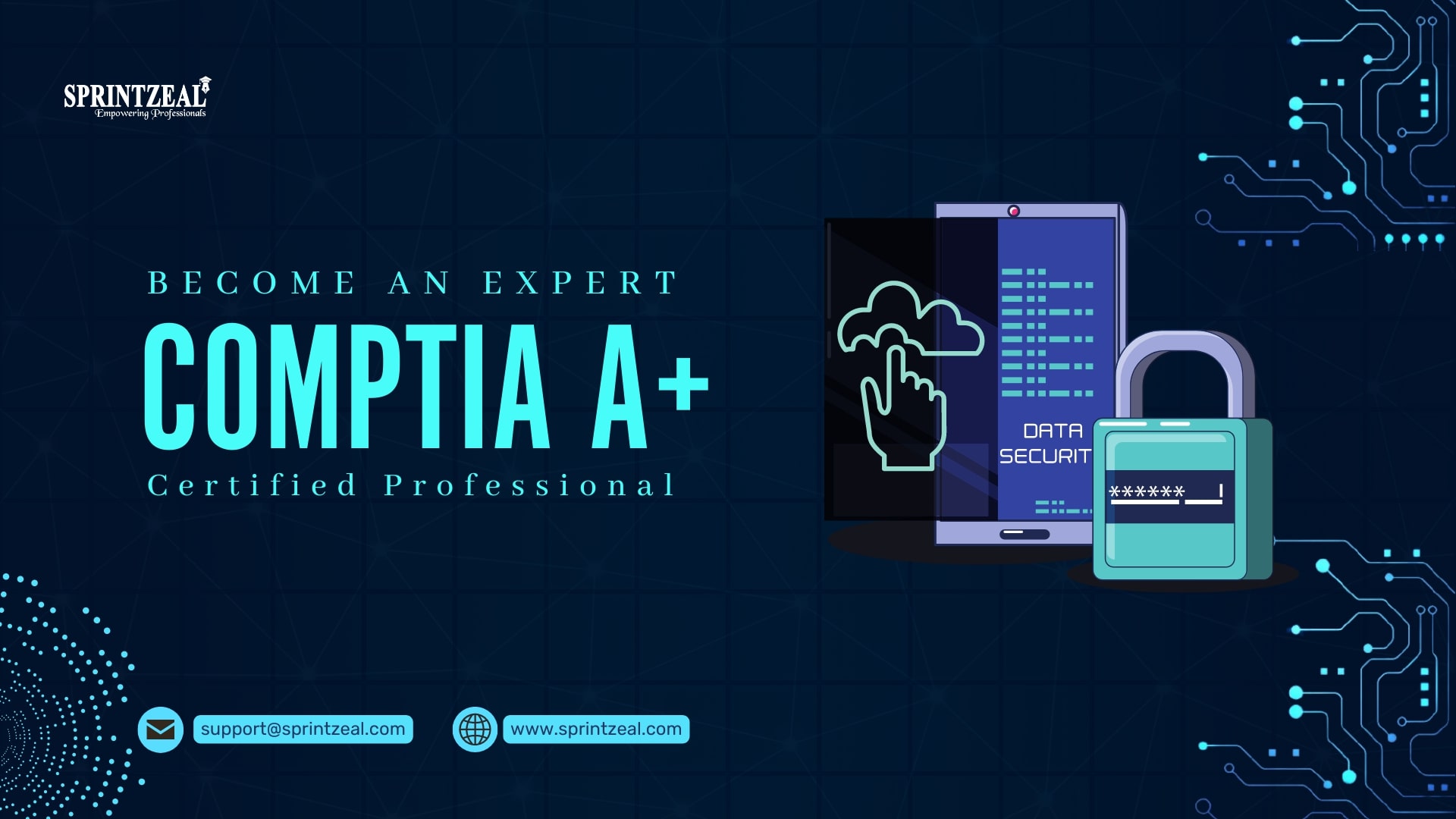
How to Build a Successful IT Career Path with CompTIA A+ Certification
Introduction
In today’s technology-driven world, a career in information technology (IT) offers exciting opportunities for growth and advancement. With the rapid pace of technological innovation, organizations are constantly seeking skilled professionals who can effectively manage and support their IT infrastructure. One way to kickstart your IT career and gain a competitive edge is by obtaining the CompTIA A+ certification. Recognized globally, the CompTIA A+ certification validates your knowledge and skills in computer hardware, software, and troubleshooting. In this article, we will explore how you can build a successful IT career path with the CompTIA A+ certification.
Understand the Importance of the CompTIA A+ Certification:
The CompTIA A+ certification is highly regarded in the IT industry and serves as a foundation for many other advanced certifications. It demonstrates your competency in essential IT areas such as hardware, software, networking, and security. By obtaining this certification, you demonstrate your commitment to professional growth and staying current with industry standards.
Acquire the Necessary Knowledge and Skills:
To excel in the CompTIA A+ certification exam, it is essential to develop a strong foundation in computer hardware, operating systems, networking, and troubleshooting. Familiarize yourself with various hardware components, such as CPUs, motherboards, RAM, and storage devices. Gain proficiency in operating systems like Windows, macOS, and Linux. Understand the basics of networking, including IP addressing, protocols, and network troubleshooting. Additionally, learn how to diagnose and resolve common hardware and software issues.
Prepare for the CompTIA A+ Certification Exam:
Once you have a good grasp of the required knowledge and skills, it’s time to prepare for the CompTIA A+ certification exam. Create a study plan and familiarise yourself with the exam objectives.. Utilize study resources such as official CompTIA study guides, practice exams, and online courses. Consider joining study groups or online forums to engage with fellow learners and exchange knowledge. Hands-on experience through practical labs and simulations can greatly enhance your understanding of the exam topics.
Take the CompTIA A+ Certification Exam:
When you feel confident in your knowledge and preparedness, schedule your CompTIA A+ certification exam. The exam consists of two separate modules: Core 1 (220-1001) and Core 2 (220-1002). Core 1 focuses on hardware, networking, mobile devices, and troubleshooting, while Core 2 covers operating systems, security, software troubleshooting, and operational procedures. Passing both modules is necessary to obtain the certification. Be sure to manage your time effectively during the exam and review your answers before submitting them.
Gain Practical Experience:
While the CompTIA A+ certification is a valuable credential on its own, practical experience is equally important for building a successful IT career. Look for internships, entry-level positions, or volunteer opportunities that allow you to apply your knowledge and skills in a real-world environment. Practical experience helps you develop problem-solving abilities, enhance your troubleshooting skills, and improve your communication and teamwork capabilities.
Pursue Advanced Certifications:
With the CompTIA A+ certification as a solid foundation, consider pursuing advanced certifications to expand your IT career opportunities. CompTIA offers various specialized certifications such as Network+, Security+, and Cloud+, which can help you specialize in specific IT domains. Additionally, certifications from other organizations like Cisco, Microsoft, and VMware can further enhance your marketability and open doors to higher-level positions.
Stay Updated with Industry Trends:
The IT industry is constantly evolving, with new technologies emerging regularly. To stay relevant and competitive, it is crucial to keep up with industry trends and advancements. Join professional organizations, attend
conferences, and participate in webinars or workshops to stay updated on the latest IT developments. Subscribe to industry publications, blogs, and podcasts to access valuable insights and expert opinions. Continuous learning and professional development will ensure that you remain at the forefront of the IT field.
Network and Build Professional Relationships:
Networking is a key aspect of building a successful IT career. Attend industry events, join online communities, and network with industry leaders.. Engage in conversations, share your knowledge and experiences, and seek guidance from experienced individuals. Building a strong professional network can lead to job opportunities, collaborations, and mentorship, accelerating your career growth.
Develop Soft Skills:
While technical skills are essential in the IT field, soft skills are equally important for career advancement. Enhance your communication, problem-solving, critical thinking, and teamwork skills. IT professionals often interact with clients, colleagues, and stakeholders, and possessing strong interpersonal skills will set you apart from the competition. Additionally, leadership abilities and the ability to adapt to changing situations are highly valued in the IT industry.
Continuously Evaluate and Set Goals:
Regularly evaluate your career progress and set goals to guide your professional development. Identify areas where you can further improve your skills or gain expertise. Stay motivated and dedicated to continuous learning and growth.
Conclusion
Building a successful IT career path with Sprintzeal the CompTIA A+ certification requires a combination of technical knowledge, practical experience, and professional development. By understanding the importance of the certification, acquiring the necessary skills, and preparing effectively for the exam, you can kickstart your IT career on a strong foundation. Continuous learning, staying updated with industry trends, networking, and developing soft skills are vital for long-term career growth. With dedication, perseverance, and a commitment to excellence, you can pave the way for a successful and fulfilling IT career.


